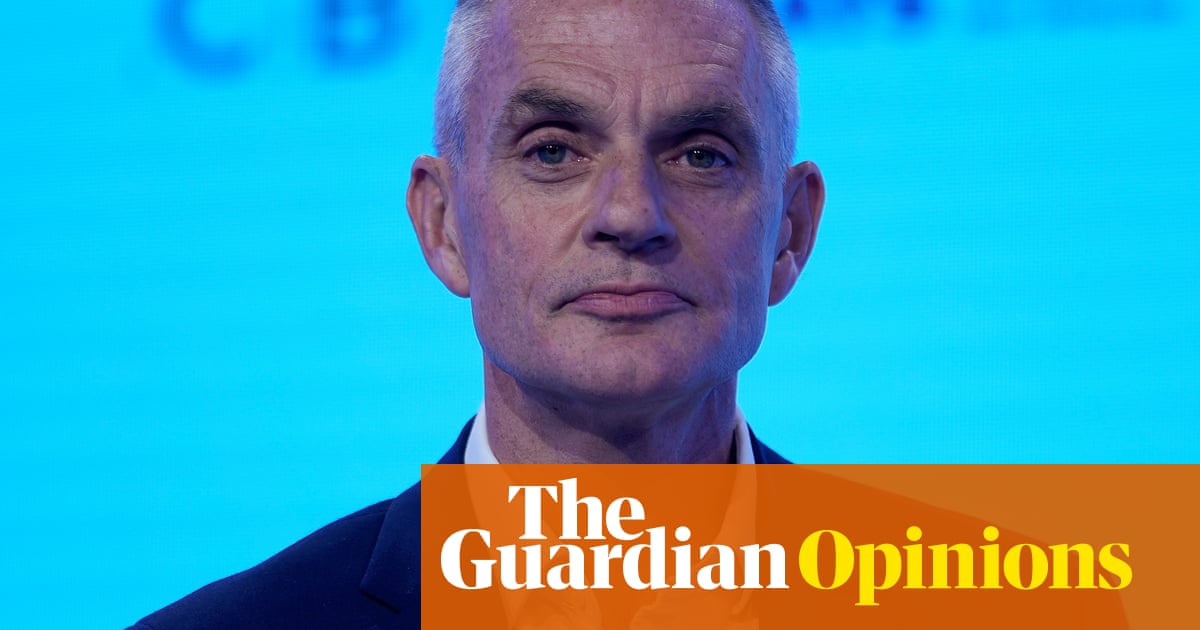Uneasy lies the head that wears the BBC crown.Tim Davie, the beleaguered director general (DG), must be checking in the mirror to see if he is still wearing it and fearing the phone call which will summon him to the chair’s office for an urgent word.
Many BBC leaders have been made to fall on their sword, usually as the result of animosity from political leaders and a media furore. The stress is largely believed to have causedIan Trethowan(1977-82) to have a heart attack. His successor,Alasdair Milne(1982-87), resigned rather than be sacked on the orders of Margaret Thatcher.Greg Dyke(2000-04), pursued by Labour’s Alastair Campbell, had to walk the plank over the coverage of the Iraq war (his chair,Gavyn Davies, accompanied him). And in 2012George Entwistlelasted only a few weeks in the building before he was ruthlessly grilled by Today’sJohn Humphrysover Newsnight’s coverage of a child abuse scandal, then left the building.
And the past can come back to haunt you. Entwistle’s successor,Tony Hall(2013-20), has beenrelentlessly pursued by Earl Spencerover the astonishing BBC interview with his sister Diana, Princess of Wales, which took place when Hall was director of news. Another instalment is promised in the autumn, when a book alleging a BBC cover-up will be published.
Now Davie’s tenure (2020-?) is in the balance because of theBBCcoverage of an act of whom the DG, along with most of us, had probably never heard.
Spewing disgusting, violent threats to Israel’s defence force may be a good career move for the rap duo Bob Vylan, though the US has just banned them, but it could be fatal for Davie.
There is no doubt that the BBC made serious errors over itscoverage of Bob Vylanand that the DG, who attended Glastonbury and was consulted for his view of how to proceed immediately after the offensive chanting aired, waspersonally involved. He decided to let the livestream of events on that stage continue while ensuring that no recordings would be made available, though this allowed viewers to scroll back and see the offending material. Many questions remain. Did the BBC do due diligence on Bob Vylan – that is, check on their history of provocative political statements? Why did they not cut the live feed of the group’s performance? Why was the coverage then left up for five hours on iPlayer?
If the DG had not been at Worthy Farm, he would doubtless have ordered an urgent investigation which would probably have resulted in disciplinary action. But he can hardly discipline himself except, of course, by resigning.
I do not think he should do so. For three reasons: first, he has, in many ways, been an exceptionally good director general who has had to manage a massive decline in the corporation’s income (down around30% in real termssince 2010) at a time of unprecedented competition, and begin moving the BBC into the digital world.
When viewed as a businessperson, he is unquestionably outstanding and could command vastly higher financial rewards elsewhere. A very decent man, he has ensured that the BBC still produces outstanding programmes and is still greatly respected around the world at a time of significant financial uncertainty for the corporation.
Second, the BBC is caught up in a passionate propaganda war over coverage of the Middle East and Gaza in particular. Trying to report fairly and authoritatively is greatly constrained by the Netanyahu government’s refusal to allow independent journalists into the Gaza Strip. The corporation has been accused of being institutionally antisemitic and/or Islamophobic, and so-called media monitoring groups on both sides are mercilessly attacking it at every opportunity. It will – it has – made mistakes, but we still need its independent and often excellent journalism at a time of partisan reporting and social-media hate speech. The corporation has also had to cope with competitors such as the Telegraph, the Mail, GB News and Talk, whose commercial success in large part depends on diminishing the role of the BBC, if not extinguishing it completely.
The third reason Davie should stay is that, right now, he is central to the BBC’s survival. The futures of the licence fee, World Service funding and public service media in general are under threat. There is no plausible successor to take up the BBC’s poisoned chalice.
But Davie needs to make changes. Although he lives and breathes the BBC 24/7, he tries to do too much himself. He needs to appoint a deputy DG who is a very seasoned journalist and flak catcher, with a suitably suspicious mind. Davie has not been a journalist or a programme-maker and does not have that extra sixth sense, an antenna for trouble, which one of his predecessors, veteran journalist and editorMark Thompson, had in abundance.
The worst thing that could happen amid the fallout from the fallout of Glastonbury is that the BBC pulls back from reporting on the tragedies in the Middle East. I believe that the opposite should take place. Davie should commission programmes that explore the history of Zionism and of the Palestinians. I have not seen or heard any programming examining Hamas in detail, or exploring the difference between being anti-Israel and antisemitic – a difference deliberately blurred by the supporters of this Israeli government.
It is ironic that some of the best reporting on the conflict comes from Israeli journalists who work inside Israel, many for the newspaper Haaretz. Bloody but unbowed, the BBC should emulate them, with Tim Davie still at its head.
Roger Bolton is a former BBC editor and presenter. He now presents a podcast, Roger Bolton’s Beeb Watch
